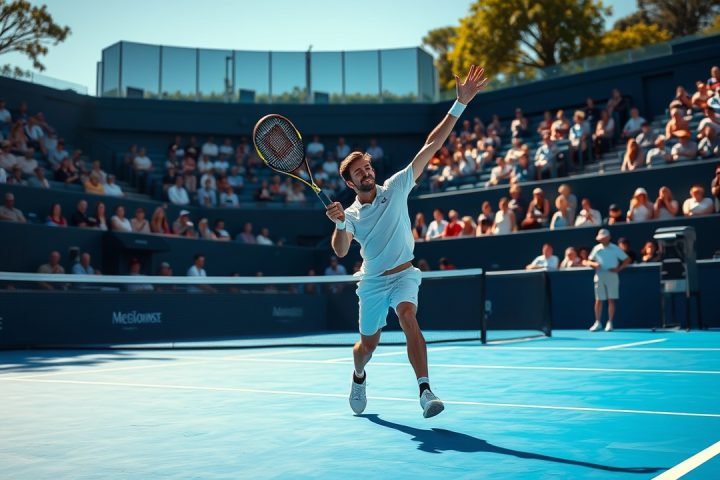Amanda Anisimova’s Defeat at Wimbledon
At Wimbledon, Amanda Anisimova faced a devastating defeat in the women’s final, losing in less than an hour to Iga Świątek with a score of 6-0, 6-0. However, rather than letting the loss overshadow her presence, the 23-year-old American athlete transformed her moment of despair into a poignant reflection on resilience.
Grace Under Pressure
Just over five minutes after the match, tears brimming in her eyes, Anisimova addressed the media, demonstrating grace under pressure. She complimented Świątek’s performance, expressed her gratitude towards the fans, and even offered an apology for not performing up to expectations. In a poignant moment, she acknowledged her late father’s influence on her life and career, recalling how her mother has supported her since his passing in 2019 and throughout a long hiatus from tennis this year.
The Power of Vulnerability
Anisimova’s remarks resonated widely, quickly becoming a notable moment from the tournament. Her honesty struck a chord with audiences and was seen as a genuine display of vulnerability amidst the harsh realities of competitive sports. This display has also drawn the attention of experts, including Amy Edmondson, a Harvard Business School professor who specializes in organizational behavior and the concept of failure. Edmondson argues that acknowledging and learning from failures can lead to significant personal and professional growth.
Learning from Failure
In her recent publication, “Right Kind of Wrong: The Science of Failing Well,” Edmondson highlights that understanding failure can be a crucial aspect of success. According to her research, the most effective organizations are not those that avoid failure but those that learn from it and press on. She identifies three main types of failures: basic failures, complex failures, and what she terms “intelligent failure.” The last category is particularly valuable as it often results in innovative breakthroughs after testing hypotheses and learning from setbacks.
Reflections from Prominent Athletes
Prominent athletes often embody this mindset. For instance, Jannik Sinner reflected on his own losses as key learning moments that improved his performance, while tennis legend Pete Sampras cited his defeat in the 1992 U.S. Open as pivotal in reshaping his competitive spirit. Anisimova’s outlook echoes this sentiment; despite the painful loss, she expressed a determination to learn and grow from the experience.
Embracing Growth
During her post-match address, Anisimova acknowledged her nerves and fatigue, sharing her struggle to maintain composure against Świątek. However, she did not view the experience solely as a failure. Instead, she embraced a philosophy shared by author Marianne Williamson, considering how pain can either be destructive or transformative.
“I’ll definitely come out stronger after this,”
she stated optimistically, encapsulating a powerful message about resilience in the face of adversity. Anisimova’s reflections serve as a reminder that even in defeat, there are opportunities for growth and introspection.




